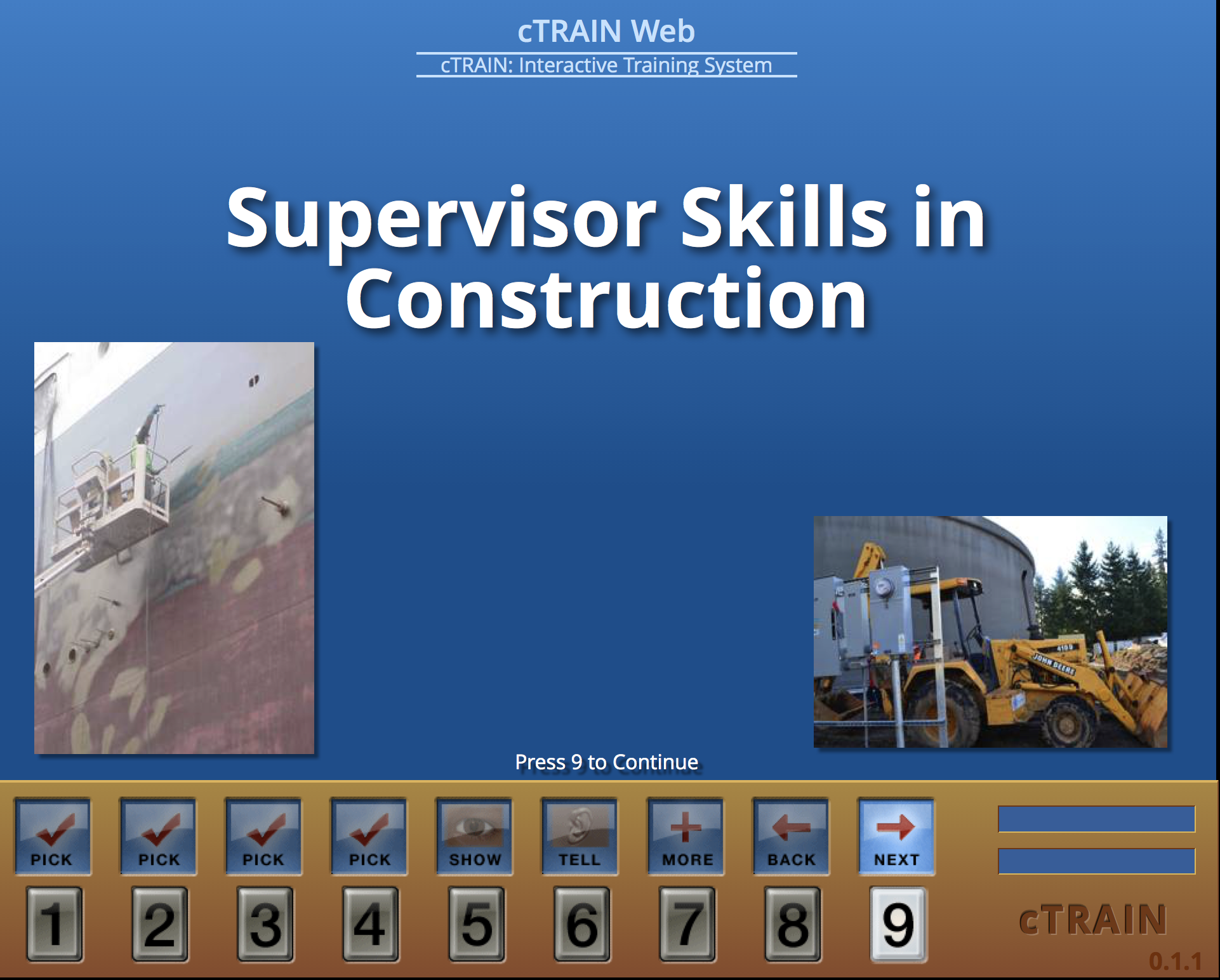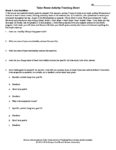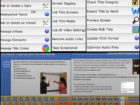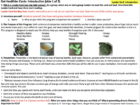Description
Supervisor Skills in Construction builds general skills in team building and behavioral skills of reinforcing desired work practices in a Total Worker Health (TWH) environment. This is the computer-based training component of the Supervisor Training in Construction project of the Oregon Healthy Workforce Center (OHWC). It teaches both the skills and the application of those skills to safety and health and wellbeing designed as an intervention project that is described on the OHWC website. There are 127 screens and three topics divided into two parts so topic 1 can be presented separately from 2 and 3:
- Tracking your employee interactions and set up to the project (download: Action Tracking Cards, Chart, Instructions)
- Team building, observation and reinforcement of desired work practices
- Application for safety and personal health and wellbeing
This training is designed for construction companies implementing the supervisor skills project, although anyone can purchase a single use license for the training, below, to learn the basic skills.
Evidence base: The BeSuper! intervention (available as a toolkit) provided (1) this computer-based training for supervisors; (2) action monitoring activities on team building, work-life balance, and reinforcing targeted behaviors designed to support the computer-based training; (3) scripted healthy lifestyle education in small groups with (4) Take Home Activity Sheets designed to support the lifestyle education; the lifestyle education and practice activities were both designed to be completed by all participants, in small groups of 3-7 people. BeSuper (presented in English) was studied in a pre- vs. post-intervention comparison of 22 supervisors and 13 workers primarily under those supervisors. The computer-based training improved performance from the pre-test (78%) to the post-test (98%) producing an effect size (d) = 2.92.* The intervention produced a significant (p<.05) improvement in family-supportive supervisory behaviors (reported by the supervisors; effect size or d=0.72), but most effects were in the lifestyle measures; they were an increased frequency of exercising 30 minutes/day and muscle toning exercises (d=0.50 and 0.59), family and co-worker healthy diet support (d=0.53 and 0.59), team cohesion (d=0.38), reduced sugary snacks and drinks (d=0.46 and d=0.46), sleep duration (d=0.38), and objectively-measured systolic blood pressure (d=0.27). These are all medium effect sizes (d). This study is in press in the Journal of Occupational and Environmental Medicine; the work is a product of Dr. Kent Anger’s laboratory.
* Effect size (d) is a measure of the size or magnitude of a change. A review of hundreds of studies categorize d = 0.25 to 0.49 as small; 0.50 to 0.79 as medium; and 0.80 and above as large (Cohen, 1988). Cohen J. Statistical power analysis for the behavioral sciences Lawrence Earlbaum Associates. Hillsdale, NJ. 1988:20-26.
This license is for the English version; click for the Spanish version.
Record of Results
Licensing provides an account, password option and secure server space where all results are saved in your organization’s space; results can be downloaded through our Data Reports tool (free).
Users who complete the final test can print a certificate of completion on the following screen.
Notes
• Trainings (licensed ‘uses’) can begin at any time over a year from the initial date on the license.
• Once a training is begun there is no time limit on when it can be completed.
• Users can quit the training (press esc or close browser) and click the original link to return to the same place in the training if they use the exact same user name that they entered when starting training.


 Take Home Activity Sheets
Take Home Activity Sheets


